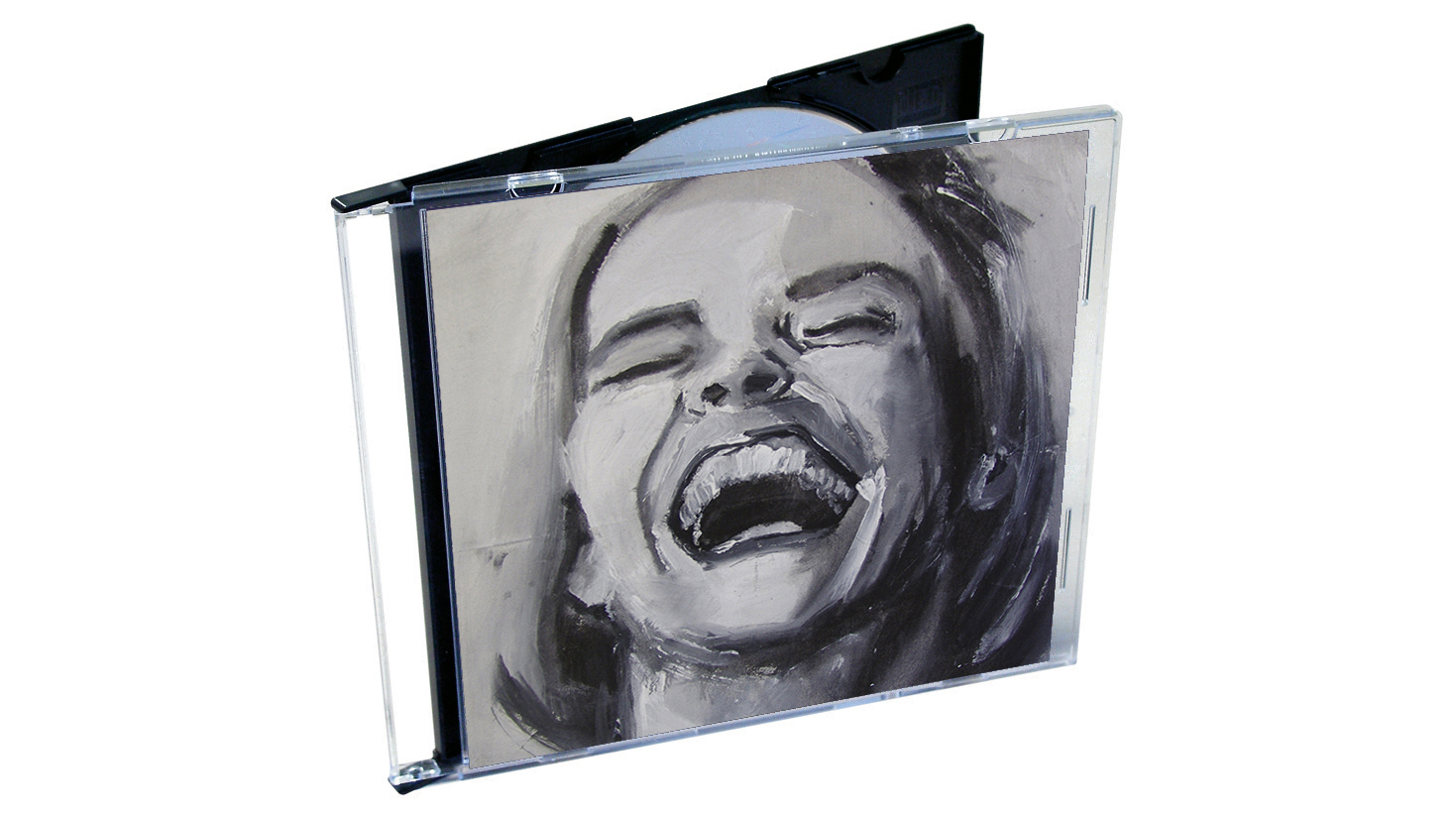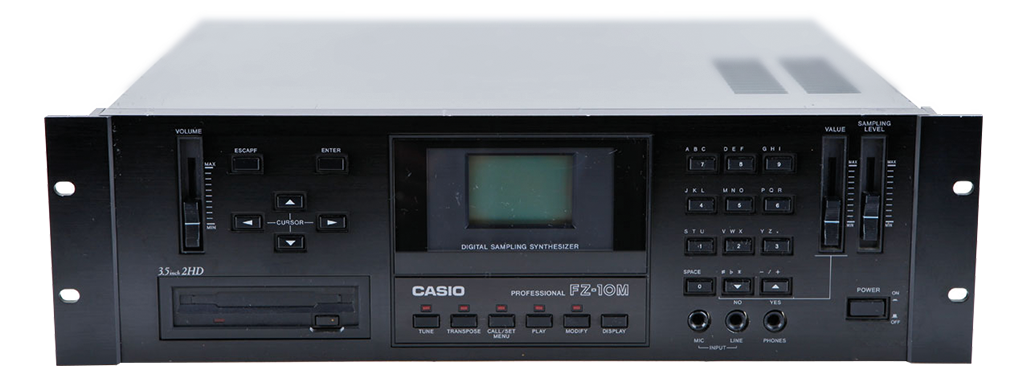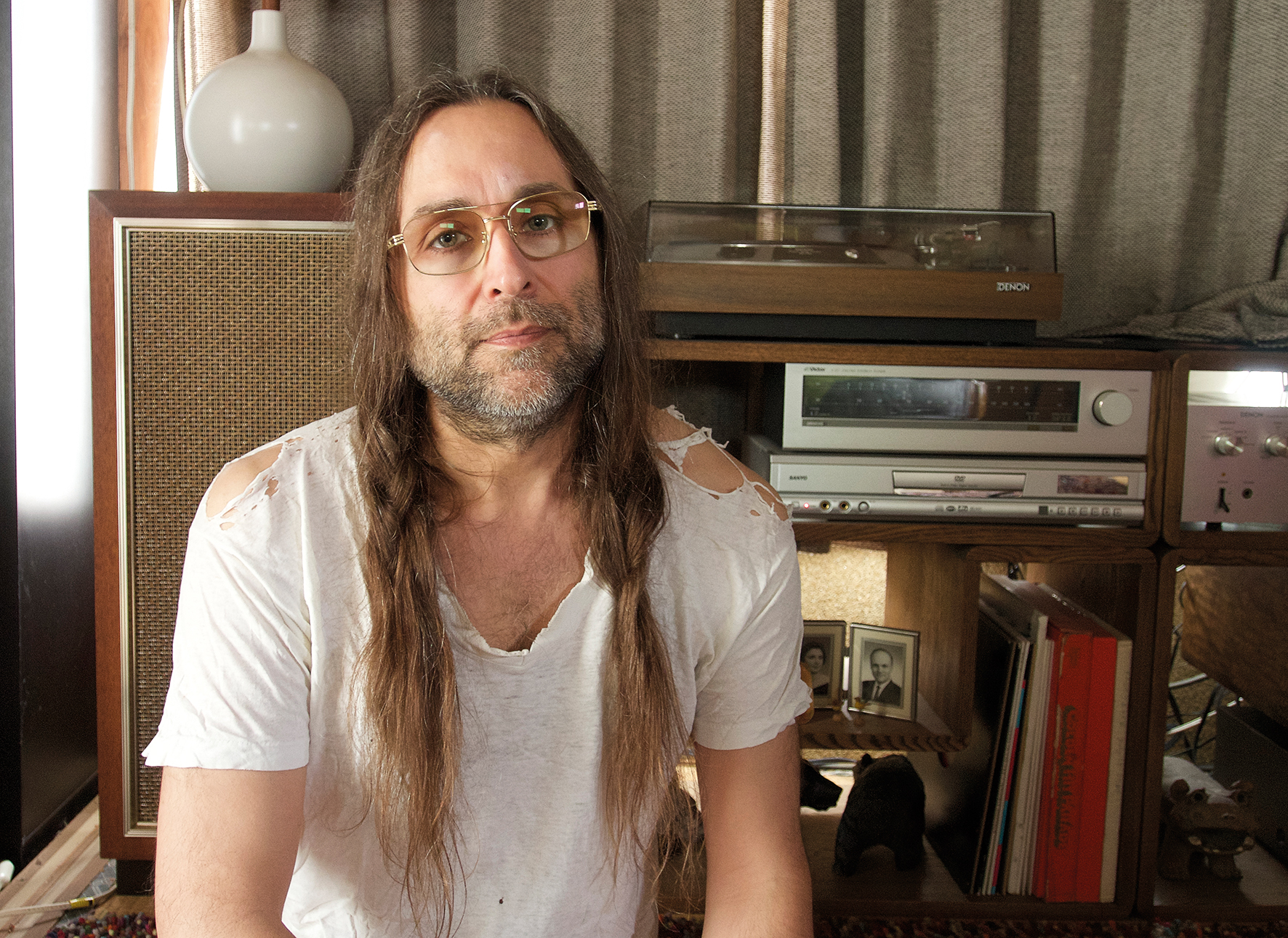DJ Sprinkles on Midtown 120 Blues: "The album is a critique of the commodification of old school deep house. A lot of people miss that point"
Terre Thaemlitz's 2009 LP calls out house music for the old lie of ‘life, love and happiness’ and tells the stories of the marginalised communities from which it emerged

Want all the hottest music and gear news, reviews, deals, features and more, direct to your inbox? Sign up here.
You are now subscribed
Your newsletter sign-up was successful
As DJ Sprinkles, Terre Thaemlitz’s musical productions hold a mirrorball up to house music, bouncing back a reflection of those within it. And, from the off, 2009’s iconic Midtown 120 Blues is an album that doesn’t like what it sees.
The intro, knowingly mocking classic big room dance track dialogue, sets its stall out early, calling out house for the old lie of ‘life, love and happiness’ it peddles.
It points out that a hundred records ask, “What is house?” But, the dancefloor hook of an answer beaming out of the club’s speakers always fails to mention those scores of forgotten, marginalised, ignored, and brutalised communities that helped build and define the contexts that this music emerged from, especially in America.
“I’ve often talked about how this idea of both house music and the nation are actually emblematic of traumas that the house community have suffered from, both in terms of queer and trans communities,” says Thaemlitz. “The domestic sphere and the nation are the two kind of major sites of social abandonment for many of us, in terms of being ostracised and kicked out of our houses.”
Thaemlitz’s own teen journey from rural Missouri to the bright lights of New York City is also referenced in the album [Grand Central, Pt. II]. Part of the queer migration story, known by many, who found themselves (in every way) in the club scene. Along with tales of sex worker woes [Brenda’s $20 Dilemma], and pop music’s appropriation and commercialisation of underground culture for its own ends [Ball’r (Madonna-Free Zone)].
It’s an LP of exquisitely deep and dense house. Melancholic and melodic. Running rich with themes that are close to the heart of the music, and helped it beat. And those that have never fitted neatly on the greetings-card version of the genre.
“The album is a critique of the commodification of old school deep house,” says Thaemlitz. “A lot of people miss that point. They think it’s this kind of weird territorial claim to authenticity and stuff. When, of course, I’m not about authenticity in any way. I’m always tearing down authenticity.”
Want all the hottest music and gear news, reviews, deals, features and more, direct to your inbox? Sign up here.

“I had a pair of giant Infinity SM speakers with the 12” woofers, from the ’80s. Then a work desk with an iMac, running Performer.
“My core synths were the Korg M1, with InVision’s Plus+1 upgrade. That introduced a lot of sounds to my projects, from the electro-acoustic stuff to the house stuff.
“Then I had an E-mu Vintage Keys, programmed to get that weird sound, somewhere between a Rhodes and a bell. And I used a Yamaha CS-10 and a lot of Yamaha Ez-ag on the album, which was like a digital acoustic guitar emulator. These were all half going through outboard effects from Digitech and Korg. And the ART E-Verb.
“I got a lot of stuff in ’91, when I started. Along with a Casio FZ-10M, which is a brilliant sampler, and better than the Akai at the time.
“Then I got a Korg SDD-2000 off Erik Dahl, who did the first port of Csound to the Mac. He was getting rid of some rackmount stuff.”
Midtown 120 Blues, track-by-track with Terre Thaemlitz
Midtown 120 Intro
“I originally had a different intro, more like a classic ’80s Chicago goofy processed voice thing. I used my voice. And I just fucking hate my voice. It’s like if Gary Numan and OMD had a baby, and then abused it.
“But, I sent the initial version to Don Ryan from Ultra-Red, who is a collaborator and good friend, and he said, ‘I get what you’re trying to do. You’re just trying to do what people have always done. But, why don’t you actually try and do something that is like more how you talk?’. So, that’s how I came out with the kind of spoken word part in that intro.
“The stories in there are real. Like the story about going to The Loft club in New York and not being allowed in, while hearing my own track being played by the DJ in the background. Things like that.”
Midtown 120 Blues Mix
“This was kind of a joke about the tech house sound that Mule Musiq was more famous for. It was not a deep house label. I consider them a techno label, straight out. I didn’t even really consider them house.
“And I think a lot of the percussion samples were a cross between things that I had in my own DJ vinyl collection, combined with things from a really lo-fi sample pack of breaks that came from a Sound Designer II card, way back in the day. Like 8-bit stuff.
“So, some of those really old sampled breaks from the 1990s were these really weird lo-fi clips from the era that I was kind of referencing in the music in the album itself.
“And this track has samples that reference the context of sex work. And the musical bits then come from songs with lyrics in that theme, too.”
Ball’r (Madonna-Free Zone)
“I was a DJ at Sally’s II, which was a transsexual sex worker club in midtown Manhattan. It was like, the ball scene and stuff, you know? It was a Puerto Rican house, mostly Latina, but also African American. And one of the queens was the one that taught Madonna how to vogue. And she was really underpaid for it. Or, I mean, that’s up to debate, but you know she definitely wasn’t sharing in the kind of profits Madonna was.
“So, she would be like sitting at a table in this club, just totally out of her mind with drugs and stuff and just totally destitute.
“And, when I was DJing, people would come up and they’d be like, requesting Madonna, and I would just refuse to play Madonna. My DJ sets have always been a Madonna-free zone.”
Brenda’s $20 Dilemma
“This one’s a story about a queen at Sally’s where somebody offered her 20 bucks to flash her tits, and she wasn’t sure if she wanted to do it.
“You can be in sex work, and when someone offers you money to do a blow job, it’s no problem. But, if they’re just giving you 20 bucks to flash your tits it’s like, yeah... [laughs].
“And, at the time, the Midtown scene was mostly the sex work scene. As opposed to like the East Village with Deee-Lite and RuPaul, and those sorts of major figures.
“There was an antagonism between the different scenes, of course. And, whereas the East Village was more of an arty scene, it could be quite mean-spirited about Midtown.
“That story also became part of a comic strip I drew for the 12” cover to the first DJ Sprinkles EP, Sloppy 42nds – a tribute to the Midtown scene’s loss to Disney taking it over.”
House Music Is A Controllable Desire You Can Own
“Nobody seems to get the joke behind this. It’s using a monologue from Chuck Roberts – the same guy who did Mr. Fingers’ Can You Feel It intro. In his own way he’s setting up a lot of dynamics of things I’ve been critical of. Like, the idea of authenticity. And, on the one hand saying, ‘Oh, it’s for everybody’. But, on the other hand, there’s this undercurrent of authenticity and ownership and, you know, the ‘house nation’.
“I’ve always been critical of nationalism, as well as family structures. So, when I use Chuck Roberts vocal samples, I always snip him up into some other context.
“He has this line that says, ‘No one man can own house’. I edited that, so he ends up saying, ‘House music is a controllable desire you can own’. Which is referencing this theme of the commodification of house that had occurred by the 2008/2009, when the album was being made.”
Sisters, I Don’t Know What This World Is Coming To
“The vocal sample here originally said, ‘Brothers and sisters, I don’t know what this world is coming to’. If I have a ‘brothers and sisters’ sample, I’ll take out the ‘brothers’ part so it just becomes about the sisters. I also did that in the K-S.H.E album I did.
“I think it’s nice to leave this male voice thing saying ‘sisters’, you know? So they get this trans reference, and not a kind of essentialist/womanist/feminine thing.
“That was also kind of a tricky track to play in clubs. But, when it does work, it works really well. But, a lot of the times, the crowd isn’t quite sure what to do with that one.”

Reverse Rotation
“This started out as a kind of rejected remix for a track by my friend, Kuniyuki [Takahashi]. I think the title was a pun on that track’s title.
“It wasn’t rejected by him, it was rejected by Mule Musiq. It’s one of those labels where they fish for content and trick you into doing more than you wanted to. They didn’t end up using it because my sound isn’t tech housey enough.
“Are you familiar with any of the remixes that came out of this album? I can’t play any of them, except the Motor City Drum Ensemble one. It’s all too techno.
“Originally, I suggested a bunch of queer kind of American house remixers, and they just weren’t interested in them.
“Does that miss the point I was making with the album? In a way it makes the point clear. I mean, we had arguments about titles and any kind of queer reference stuff. They just totally didn’t fucking get it. So, it was kind of the wrong label.”
Grand Central, Pt. I (Deep Into The Bowel Of House)
“This title is kind of that Chuck Roberts thing again where he’d say, ‘Deep into the vibe of house’.
“When I, as a youngster, I misunderstood it, because I was hearing it in these really gay clubs. I thought he was saying, ‘Deep into the bowels of house’, which, of course, is much better.
“This was also the first track I made for the album, even though it comes later on in the album. It’s a two-parter. I mean, originally it was just going to be one song. And then I decided to split it, just for the CD indexing friendliness. But, for me, it’s just one track. Part one and two have the same composition.”
Grand Central, Pt. II (72 Hrs. By Rail From Missouri)
“I moved when I was 18. I went from Missouri to New York, and I went by train. It actually took three days because we broke down for 12 hours in the middle of nowhere.
“It was like the Beverly Hillbillies, you know? We pulled into Grand Central Station and I literally had a foot locker. I didn’t even have suitcases. Proper country bumpkin, trying to get it into the trunk of a taxi to take me to the YMHA. It was a different world, for sure.
“Musically, I was tapping into groups like The KLF and World Standard, who were a Japanese ambient electronic group produced by Haruomi Hosono from Yellow Magic Orchestra. The kind of stuff he was doing in the beginning of the ’90s, before the genres of house music had really become crystallised.”
The Occasional Feel‑Good
“After the ambient outro of the last track, I think I leave either 30 seconds or a full minute of silence between them. Like a kind of bonus track, because of the CD culture.
“This one is actually the most upbeat track on the album, in a way. So, just putting the most upbeat track at the end was like, ‘OK, there’s an occasional feel-good moment’.
“There’s some guitar on there, too, which is quite unusual for me to use in house productions. I had a Guyatone steel guitar. I grew up in the Midwest in Missouri, around a lot of bluegrass and folk music, and I actually like that stuff.
“It also kinda ties in with bands like The KLF, who had that Americana fetish, too.”
This year, Terre Thaemlitz is heading to Germany to cut the ribbon on the super special solo survey exhibition, “Reframed Positions”.
Curated by Lawrence English, in association with Room 40 at Halle Für Kunst Lüneberg, it will run from this May 10th to July 2nd. The event will feature, for the first time, all the early video works, and large minimalist triptychs.
Lectures and electroacoustic audio/visual presentations are also on the cards this year at the infamous Panorama Bar in Berlin.
For Thaemlitz news and archived content, including CD/poster editions of this album, visit Comatonse Recordings' website.

